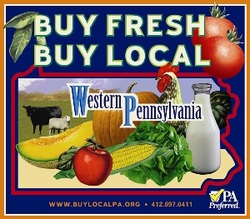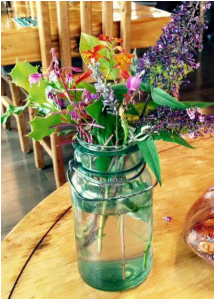
What is extra special cool about being here is that you get to meet amazing people with lots of smarts and good ideas. Today I listened to Patricia Allen from USC-Santa Cruz's Center for Agroecology and Sustainable Food Systems. Dr. Allen is a candidate for a position in Chatham's new School of Sustainability and the Environment - her presentation today demonstrated that understanding how food systems work can tell us how sustainability in general works. In her words, food provides countless opportunities for reflection and action. Just as we are attempting to understand and promote sustainable living - sustainable health and well-being - with regard to water, air, time, animals and plants, the whole ecosystem, we are also doing so with regard food systems specifically. Here are a few points to consider:
- It is important to know public policy - what exists now with regard to regulations and subsidies related to agriculture, what is beginning to change, what else needs to happen, and how to make it happen. For example, we need to understand why food produced in large agri-businesses is often cheaper in the short-run than local and organic food - in part related to public policy - and also to think about the larger costs to health and the ecosystem in the long-run when we rely so much on agri-business for our food.
- It is exciting to hear that the US Department of Agriculture is looking at public policy and is beginning to talk more about local and organic foods - and about the use of regional food sources for school food programs.
- It is thought-provoking (and anger-inducing) to realize how deeply social justice issues are embedded into food systems. For one, the individuals who work on the farms, process the food in factories, and prepare and serve the food are often among the lowest paid laborers in our country. Many of them are undocumented workers (Dr. Allen estimates about 80% of farm-workers are undocumented) and thus have no recourse for addressing pay and work conditions - and yet large companies (and we, by purchasing cheap food that does not reflect its "true cost") benefit from their labor. In addition, the poorest people - usually divided along race and gender lines, in addition to income - are the ones who have the least affordable access to healthy foods.
I am talking about this because, as Dr. Allen pointed out, food is something we all need - and think about and enjoy. Every single day, we make choices about food - what to eat, where to get it, how to prepare it. These choices have implications beyond our meals. These choices affect the health and well-being of ourselves and our families in the moment, and they also support by dollar power one or the other types of food production-processing-distribution systems - which has very real effects on the the long-term health and well-being of our environmental, social, and economic systems.
One excellent book about this topic is Barbara Kingsolver's Animal, Vegetable, Miracle: A Year of Food Life. I am also going to check out Dr. Allen's Together at the Table: Sustainability and Sustenance in the American Agrifood System.
Let me know what you think!


 RSS Feed
RSS Feed
